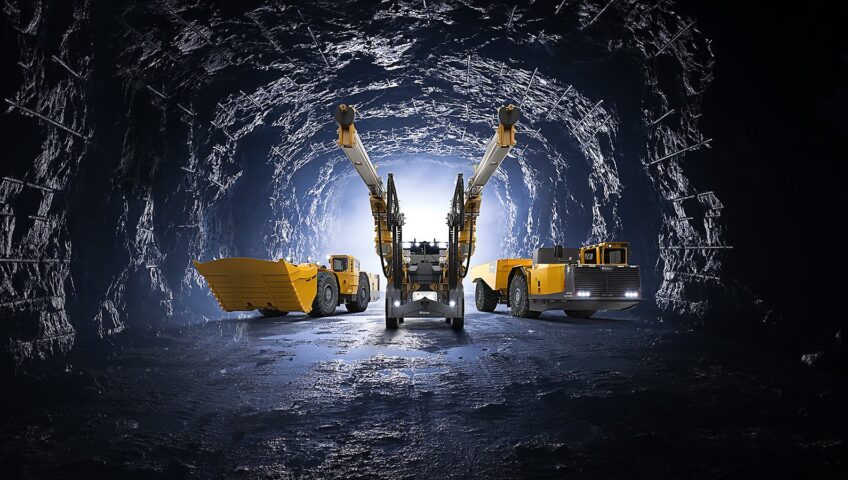Last week MTS was invited to present at SRK’s Modern Mine workshop held in Santiago, Chile. The two-day event brought participants f
Our Key Takeaways from SRK’s Modern Mine Workshop
Technology is sweeping through the mining industry. These advances are changing the way we work, opening up new possibilities…(and perhaps, in some areas, generating distraction!).
Last week MTS was invited to present at SRK’s Modern Mine workshop held in Santiago, Chile. The two-day event brought participants from across the globe to discuss technological innovations and identify opportunities to provide value to clients. Whilst spanning a wide range of topics, there was a major focus on extraction, analysis and application of data generated through real-time data capture at mining operations.
Here are our key takeaways:
Epiroc gave an overview of how they are collecting detailed machine health using sensors and working with fleet management systems to collect productivity data.
Epiroc also presented its latest battery-electric range of emissions-free underground mining equipment. This new generation of trucks, loaders and jumbos utilise a range of battery and charging options with significant battery life.
Other developments of interest included self-charging on downhill loaded hauls and the advantage of improved air quality due to reduced emissions, subsequently reducing the demand on ventilation systems (with potential additional cost savings by modifying tunnel dimensions and fan sizes).
Autonomous Haulage Systems (“AHS”) for open pit mining was discussed, centred around a case study of early implementation. Whilst autonomous mining is now becoming increasingly common, it was interesting to hear about some of the earlier forays into this field from SRK staff who managed these projects. We also gained insight into the evolving approach to adapting mine design for AHS.
The application of Mine Simulation tools to analyse complex operational interactions were demonstrated by Pierre Labreque (whose company, Labrecque Technologies merged with the SRK group in 2018). His team is able to simulate materials handling scenarios (considering load, haul, tip locations and routes) based on existing haul roads (or tunnel locations) and planned designs to forecast equipment requirements and operational performance. Multiple potential designs and haul scenarios can be evaluated to determine the optimal solution for clients e.g. dispatching trucks to different load locations or changing traffic flows. Pierre demonstrated the results of a recent study where they quantified the productivities for alternative mine layouts for an operating underground caving operation in South Africa by running a series of equipment and underground development plan simulations.
Christian Gonzalez of Intellisense demonstrated how they build digital twins of processing plants. With these twins they can map the progress of ore from the mine through the processing plant so that plant operators can fine tune the application of reagents and manage retention time to optimise recoveries and costs. Their approach is also capable of modelling the location of ore on stockpiles, both ex-pit and plant stockpiles.
Renée Barrette, from SRK’s Sudbury office, presented guidelines on ways to assess Implementation and Organisational Readiness. This area is frequently overlooked, undervalued, and typically under-resourced within the mining industry. The importance of a thorough Change Management strategy should never be underestimated when implementing new, often disruptive, technologies.
Data and conversion to actionable information, was predictably one of the larger topics discussed at length in several of the sessions. A common conclusion was that whilst the industry has largely improved at harvesting and storing large volumes of data; they still regularly struggle to do anything with it. Throughout the sessions, some quite innovative examples of how mines have overcome this challenge were presented. This included automating the process of collecting and modelling piezometer readings from tailings dams, using drones to map the actual behaviour of boulders falling down a pit slope and then calibrating models to design rock catchment berms, haul road analysis (below!) and analytics for resource modelling.
Haul Road Explorer Audit Edition
Finally, this was MTS’s first opportunity to present Haul Road Explorer Audit Edition (“HREa”) which was recently trialled through a joint MTS-SRK team initiative at an operating open pit mine.
What is this?
Designed and built in partnership with SRK, this is a special version of Haul Road Explorer aimed at auditing the performance of haul trucks where the mine lacks a fleet management system or where the mine wants a quick assessment of the haulage efficiency. HREa enabled the SRK team to rapidly, quantifiably and visually demonstrate to the mine managers how they can improve their road network and increase productivity by 5-8%. We will be blogging quite a bit more about this in the coming months!

In summary, the workshop proved to be an excellent opportunity for everyone to share a broad range of ideas on how (and why) technology can be used to support clients with existing and developing operations across the globe. It was a privilege to attend and collaborate with a great group of mining professionals. We look forward to future workshops and collaboration with the SRK group.
Cheers
Tom and Joe
[DISPLAY_ULTIMATE_SOCIAL_ICONS]

